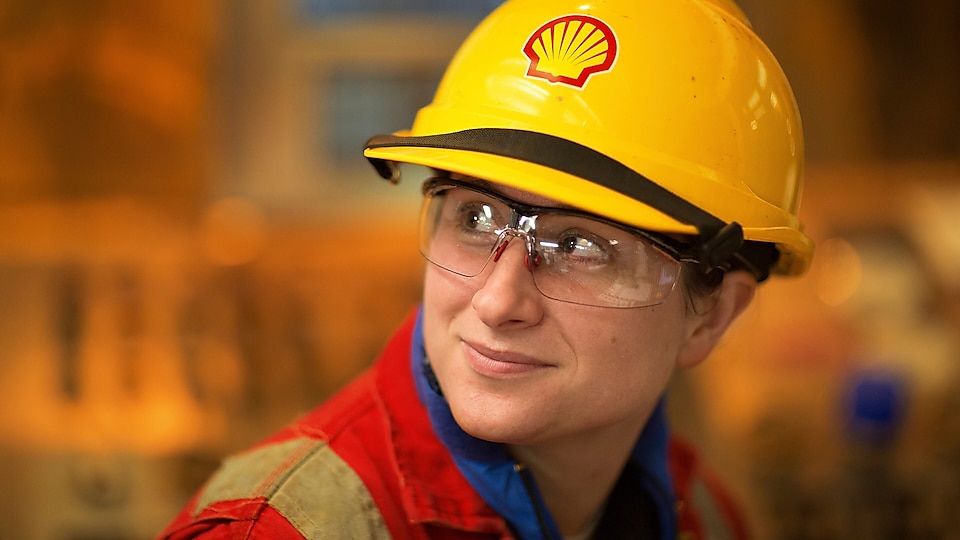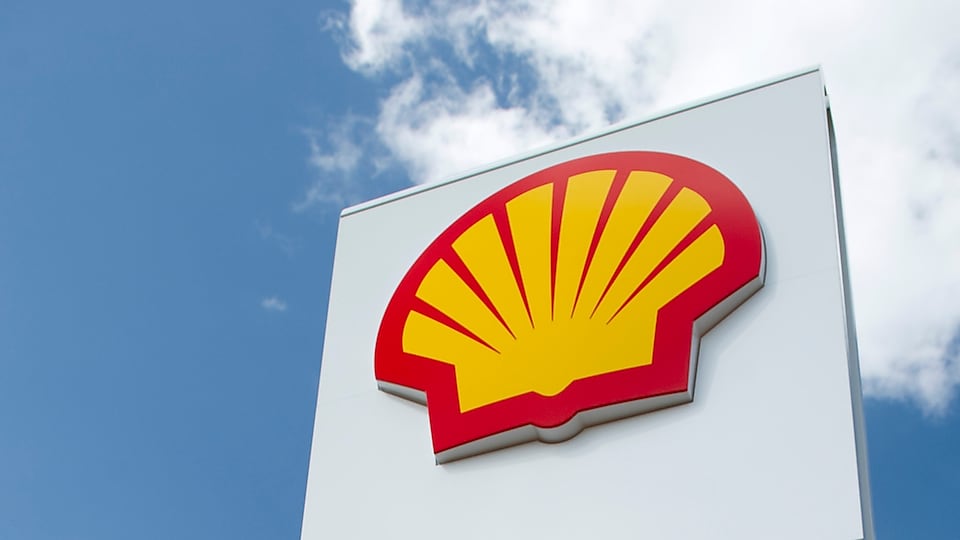The spirit of competition powered these careers
Apr. 05, 2016
Meet eight former Shell Eco-marathon Americas participants that are now Shell employees.

In 2013, University of Colorado at Boulder teammates,
Austin Schipper and Paul Sweazey at Shell Eco-marathon in 2013. They are now both Shell employees at Martinez Refinery.
Austin Schipper and Paul Sweazey, posed for this photo on the floor of the George R. Brown Convention Center in Houston, Texas with a singular goal: to travel the farthest distance on the least amount of energy. Little did they know that energy production at Shell’s Martinez Refinery would be a shared goal for them in their professional careers just three years later.
“I wasn’t planning to work in the oil and gas industry, but one of our Capstone Projects fell through and opened the door to be a part of the Shell Eco-marathon team,” said Austin. “So many mechanical engineers leave college and don’t know how to tighten a bolt but 90 percent of my hands-on learning came from being a part of Shell Eco-marathon.”
As a Capstone Project at CU-Boulder, participating on the Shell Eco-marathon team was needed in order to graduate. While Paul participated and graduated in 2012, he assisted Austin’s team in 2013.
“At the Eco-marathon itself, I noticed how the Shell employees worked well together – everyone was super reasonable with each other and had clear communication. Everyone seemed happy to be there and had a good vibe,” recalled Paul.
Through their positive experiences at Shell Eco-marathon and with the guidance of Shell university recruiters (at the time, Gordon Johnson and Vito Bavaro), the rest you can say is history. Austin is a Rotating Equipment Engineer and Paul is a Pressure Equipment Engineer and both work at Martinez Refinery.
Austin and Paul are just two examples of how in nine years Shell Eco-marathon Americas has impacted not only the future of energy but future energy leaders.
A unique project leads to meaningful experiences and enriching opportunities

Nancy Peng not only drove the University of British Columbia at Vancouver’s Shell gasoline-powered UrbanConcept, but she also helped on the vehicle’s aerodynamics.
Another CU-Boulder grad and now Technical Lead, Fleets and Mining, Greg Paluska, found, “the team dynamic and the pressure of the project were very unique to the Eco-marathon. We had to raise our own money, schedule enough time and budget knowing there were deadlines we had to make and be ready to drive our vehicle to California.”
Matthew Sponiar, now Operations Engineer at Groundbirch and founding member of the Shell Eco-marathon team at the University of Alberta in 2012-2014, also benefited from being a part of his team. “Exposure in the Shell Eco-marathon put me in the forefront of employers and gave me the opportunity to take the design practice out of the classroom and do the implementation. It added a richer experience.”
Paul Lee, a Drilling Engineer-in-Training in Canada, also founded a team at the University of Waterloo in 2014 and saw his Shell Eco-marathon participation as “a great way to get involved in possibly one of the greatest challenges and opportunities for the next century forward: shifting the energy systems in a systematic fashion.”
And, Dudon Wai, founding member of the University of Waterloo team in 2014, and now a Drilling Engineer-in-Training, found the experience unlike other school projects. At Shell Eco-marathon “we had to start with an idea and turn it into something to drive on the road. There were a lot of stages to go through to get from start to finish. It was an invaluable opportunity.”
Shell Eco-marathon Leaves Lasting Lessons
Nancy Peng not only drove for her team at the University of British Columbia at Vancouver but also worked on its aerodynamics throughout 2012 and 2013. Her lessons on teamwork are ones she brings with her to work every day. “A part of the project was about working with a diverse amount of people with different backgrounds.
The student team on campus wasn’t just limited to engineers. We worked with students of all different levels. A huge part of working at Shell is based on diversity and how we work together on a team. It really helped prepare me to be an employee here.”
One lesson that stuck out for Noah Joost, now a Facilities Engineer on the Permian Surveillance and Technical Team, rings true for many of the participants: just because you don’t win, doesn’t mean you lose, either.
In 2014, the University of Houston debuted their first team ever. The team spent countless hours building the vehicle from scratch and since they were in the battery-electric category, they had to build the vehicle’s motor controller, too. At the competition, they passed technical and safety inspections (big feats within themselves) and were ready to take to the streets to compete until a night of tinkering rendered their vehicle useless.
“Overnight, some of the team had been testing and tweaking the vehicle and caused the circuit board to burn up. We had to frantically work through one of the competition days to get it right and we couldn’t do it fast enough. Despite that let down, we knew we had already accomplished our goal – to bring a finished vehicle to Shell Eco-marathon.”
Right when the University of Houston team walked through the door with their battery-electric vehicle at the beginning of the competition, they had already accomplished what they had set out to achieve and brought home a winning attitude, too.
And, some final words of wisdom
“Have fun and be proud of what you accomplish – be able to see what you made. It’s already a major thing to even make it there – enjoy the moment. Constantly seek for continuous improvement, it will not always be perfect and it’s how you go about it with your attitude.” – Nancy Peng
“Don’t give up. Day one of the competition, we had a complete electronics failure and in that moment, it was just focus, don’t panic, take a moment to think of what to do next and execute and you’ll overcome that moment.” – Paul Sweazey
“Plan for the unexpected. We had a major issue two days before we left. We were behind schedule and we had just finally got the car to a point we could drive it and had an engine problem. Getting the right replacement part was virtually impossible.” – Greg Paluska
In less than 20 days, over 1,200 high school and university students will set foot inside Cobo Center in Detroit for a weekend of cheers and, maybe, some tears. And, while their memories will last forever, which ones will make a lasting contribution to Shell and the energy industry? Only time will tell.
Have some words of wisdom or support you’d like to leave for this year’s Shell Eco-marathon teams? Leave them in the comments below.
Are you a Shell employee that participated in Shell Eco-marathon? Email heather.pray@shell.com.
See more about Shell Eco-marathon Americas and what's to come for 2016 here or share it with your friends online.
More in Media
News and Media Releases
News and Media Releases - All media releases published by Royal Dutch Shell plc this year, and archived releases from the past six years.
Media Inquiries
If you are a member of the media, we welcome inquiries related to Shell Canada’s corporate activities. Click to access the submission form.

